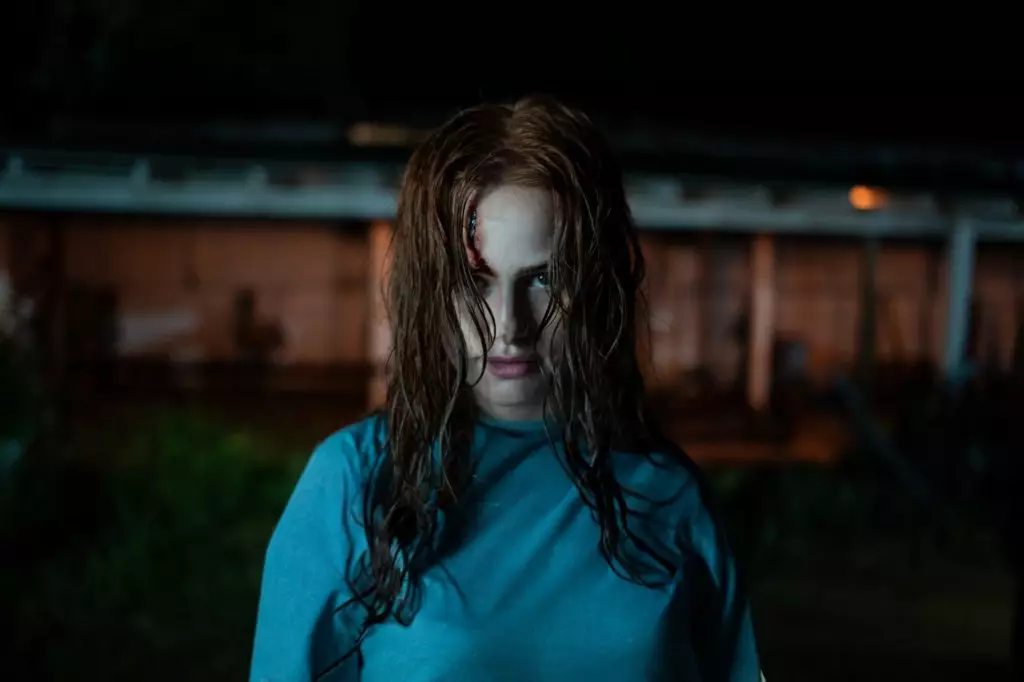The horror genre often rides the ebb and flow of public interest. Yet, the unexpected resurgence of Lionsgate’s *The Strangers: Chapter 2*, set to hit theaters on September 26, 2025, is nothing short of fascinating. The original *Strangers* film released in 2008 brought forth a fresh, chilling narrative that not only unsettled audiences but also created a niche revival in horror films. To this day, its influence resonates in the genre. With the first installment clocking in at an impressive $52.5 million domestically against a meager $9 million budget, the financial success laid down a blueprint for horror franchises.
As audiences increasingly crave authentic experiences and visceral fright, the return of the *Strangers* franchise promises a blend of nostalgia and innovative storytelling. This time, under the direction of Renny Harlin, we can expect to see Madelaine Petsch, Gabriel Basso, and Ema Horvath step into roles that could either redefine their careers or serve as cautionary tales of horror actors. The anticipation is palpable.
The Horror-Infused Political Commentary
What is particularly intriguing about *The Strangers: Chapter 2* isn’t just its production or marketing; it’s how it fits into the cultural zeitgeist. The first film was a visceral commentary on isolation and fear, themes that have only magnified in today’s sociopolitical discourse. Many viewers found deeper meanings woven within the fabric of horror—such as the paranoia that often accompanies a divided society. *Chapter 2* has the potential to create a narrative that resonates beyond mere scares, touching upon themes of trust, community, and underlying societal tensions.
In an age where divisive politics often dominate the headlines, a horror film that explores the psyche of individuals in a strained landscape can function as a mirror reflecting the anxieties of the times. This creates an opportunity for horror to become a platform for dialogues that go beyond traditional cinematic expectations, as was so fervently demonstrated in Jordan Peele’s works.
Behind the Scenes Turmoil: The Clash of Titans
However, the production journey hasn’t been devoid of complications. The delays surrounding *Saw XI* hint at a fragmented relationship between Lionsgate and its producers. When franchises collide, as seen with the tensions between *Saw* and *The Strangers*, the result can be detrimental to both. As a center-right liberal, I appreciate the business acumen required in maintaining creative ventures. Still, it is alarming to see once-prominent franchises stumble due to internal strife. The startling news that *Saw XI* has been taken off the calendar paints a picture of a studio that might be confused about its own brand identity.
This sparks a crucial conversation about the responsibility of production companies to manage expectations and creative direction effectively. If left unchecked, a war between legacy and innovation could extinguish the very essence of horror that initially captured our imaginations.
The Audience’s Role in Reviving Franchises
So why should *The Strangers: Chapter 2* matter to audiences hungry for new content? Because, ultimately, the success of horror films lies in audience engagement. This chapter must transcend its predecessors. Fresh faces, new narratives, and an evolution of horror tropes could invoke a resurgence of a fanbase that craves something beyond jump scares. If successful, Lionsgate might just rewrite what audiences expect from horror, setting the stage for yet another wave of franchise films.
By understanding the threads connecting each narrative and the shifting cultural contexts, *The Strangers: Chapter 2* might stand not only as a sequel but as a cultural commentary on the very fears that plague us today. When horror aligns with social consciousness, it becomes more than mere entertainment; it turns into a catalyst for reflection and discourse.

